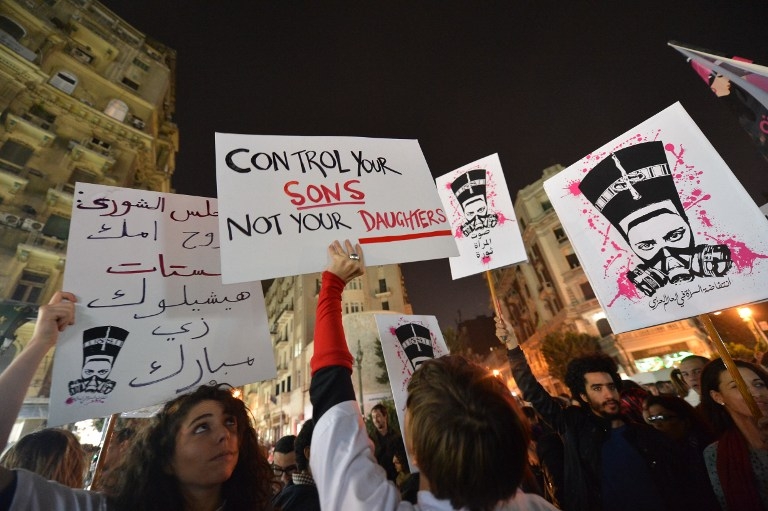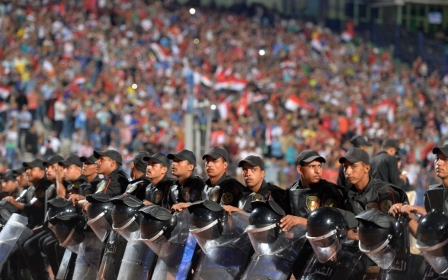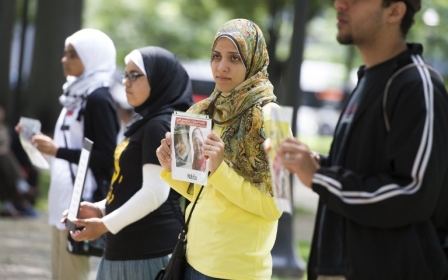Head of Egypt's council for women slams detained female activists

In an interview televised last week, the Egyptian president of the National Council for Women (NCW) said a group of jailed female activists were better off behind bars than they were on the outside.
In an hour-long interview on privately-owned Dream TV Egypt, Mervat Tallawy, defended Egypt’s human rights record, pointing out the favourable conditions in which she said female activists are living in Egyptian detention facilities.
“They talk about torture inside the prisons. I went to the prisons and saw the 7 am girls and the Muslim Sisters and so on. They live better than they were living on the outside. Seriously. I asked them: Is anyone hurting you? Do you get books? Do you go out for a break? Do you go to the canteen to buy? Are there problems? There are no problems,” she told the host of ‘Kalam Tany’, a show that discusses social and political issues in Egyptian daily life.
In December 2013, 21 young women were handed prison sentences ranging from 11 to 15 years for assembling on a street in Alexandria. The group which Tallawy referred to in her interview came to be known as the '7 am movement' because the young women protested the military-led government early in the morning, on their way to university and school.
However, she also put up a bullish defence against the criticism of the NGO law arguing that Egyptians NGOs decrying the country's human rights record were only seeking funding from the international community.
“If they [local civic organisations] did not do this, they would not receive money from abroad. This is what it is clearly. This is their commodity, regrettably,” Tallawy said.
“Civil society organisations were used [by the West] to topple the Soviet Union. This is what we need to understand; this [civil society] is the new weapon they using [the West] are to topple the state,” she continued.
“I lived abroad more than I lived inside (the country). Even if you were to turn your ten fingers into candles and light them, you would not please them [international community]. They will always criticise. Either you submit to their policy and act according to their instructions or they'll [do] … anything to fabricate,” she continued.
Nearly two weeks after the hearing in Geneva, Egyptian ministers and local media have continued to discuss the routine review which has frequently been painted as a battle between the government and the Muslim Brotherhood.
Several local news outlets reported on the review as a victory for the Egyptian delegation which “managed to foil a Muslim Brotherhood plot” to defame the government.
Some Egyptian media reports referred to a press conference organised by representatives of the Brotherhood and other opposition activist groups prior to the conference as an attempt to “attack the government”, while Egyptian satellite channel al-Mihwar reporter Mohamed Shordy described a report, produced by the group’s legal team Irvine Thanvi Natas solicitors for the review, as a collection of “unfounded lies” that were used to “embarrass Egypt”.
Middle East Eye propose une couverture et une analyse indépendantes et incomparables du Moyen-Orient, de l’Afrique du Nord et d’autres régions du monde. Pour en savoir plus sur la reprise de ce contenu et les frais qui s’appliquent, veuillez remplir ce formulaire [en anglais]. Pour en savoir plus sur MEE, cliquez ici [en anglais].




